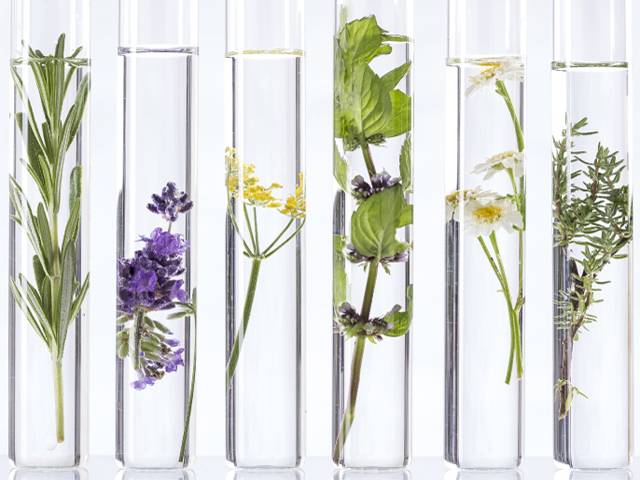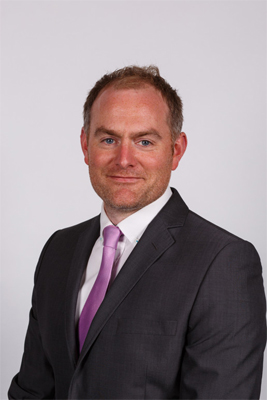Dr Kieron Edwards Sage for Better Memory Interview

Turn to Sage for Better Memory
New research has found the secret to better brain function could be found in your backyard garden.
Sage. It's the aromatic plant, used since ancient times, to treat numerous health issues.
Clinical trials out of the UK now suggest the common garden plant and well known herb can help improve your memory, especially in the young and elderly.
Studies now show that the well-known herb has properties that can significantly improve cognitive performance in both young adults and the elderly.
Separate clinical trials explored the impact of a type of sage extract grown and harvested by Sibelius, a natural product company spun-out from Oxford University.
The first trial, which involved adults older than 65, showed that SibeliusTM: Sage had near-immediate, significant improvements in secondary memory (where information is stored) and in accuracy of attention.
The second trial looked at the impact of sage on the cognitive performance of 18 to 25-year olds, finding significant effects on participants' short term, episodic memory, as noted by their improved ability to accurately recall information.
Both studies were double-blind, randomized, placebo-controlled trials and showed no adverse effects in either group.
Experts say the results are promising for those looking to delay the onset and mitigate the impact of age-related conditions as well as those eager to improve their 'healthspan' and promote a healthier ageing process.
Craig Fallshaw, founder of Sibelius Sage Australia, said: "We define one's healthspan as the period of time that a person is healthy during their life. While average lifespans have been increasing by almost two years per decade, healthspan is improving much more slowly and in some cases, becoming more unequal."
"Healthy adults are looking for ways to slow down cognitive decline and boost brain performance, even before noticeable changes occur and we want to provide solutions that improve the quality of life, regardless of what stage of life you are in,"
"Sibelius Sage is backed by clinical evidence that shows improved cognitive performance. While the product is initially targeted at the seniors market, it has broad appeal across all age groups, whether you're a student studying for exams, an executive preparing for a board meeting, or simply someone who needs an extra push in the morning," he said.
Sage extracts have been shown to inhibit an enzyme that breaks down the part of the brain which plays an important role in the formation of memories.
They also possess strong antioxidant and anti-inflammatory properties, which researchers say may contribute to its cognitive benefits.
Spokesperson for Sibelius, Dr Kieron Edwards: "Inflammation is increasingly recognised as a risk factor for many age-related conditions, including cognitive decline. SibeliusTM: Sage may help to counteract the pro-inflammatory conditions associated with both cognitive diseases and poor cognitive performance."
Experts say with growing evidence of the benefits of sage, the challenge has been identifying and standardising the plant's most useful properties on a larger scale.
"Some unbranded sage ingredients aren't very transparent in terms of how the leaf was harvested and how extraction was done. All those things determine the effectiveness of the ingredient. We have identified and selected a particular cultivar of sage, grown at a single farm source to help ensure that we can maintain a consistent, effective product," Dr Edwards added.
Sibelius uses its patented testing platform, ChronoscreenTM, to confirm, on an ongoing basis, that its preparation of SibeliusTM: Sage has unique and beneficial biological activities.
According to a survey by FMCG Gurus, nearly 60 percent of consumers are interested in cognitive health products even when not suffering from specific health problems. Over 20 per cent are taking supplements, visited a doctor or made changes to their diet to improve cognitive health.
Interview with Dr Kieron Edwards
Question: What inspired this research into sage as a memory enhancer?
Dr Kieron Edwards: Primarily trying to understand how we can improve cognition and memory using natural products. Sibelius uses a revolutionary first in class testing system known as Chronoscreen Technology. Our tech is used to screen through thousands of natural actives targeting memory, longevity and cognition. SAGE was selected based on its superior properties specifically in relation to reducing inflammation and enhancing cognition.
Over the last 5 years, multiple clinical trials have shown that Sibelius: SAGE has the ability to significantly improve memory, cognition and alertness.
 Question: What did the clinical trials show?
Question: What did the clinical trials show?
Dr Kieron Edwards: The original Scholey study on healthy older adults was carried out in 2008 on 20 people (65-90 years old) at the Northumbria University in the UK.
The newer study in healthy 18-25 year olds was carried out with a CRO called daacro in Trier in Germany. It included 36 subjects.
Both studies were double-blind, placebo-controlled studies. The older adult study was a cross-over design whereas the younger adults was parallel design. https://www.ncbi.nlm.nih.gov/pubmed/18350281
A significant effect on immediate word recall accuracy after 1 hour in 18-25 year olds
Both the 150mg and 300mg dose showed a significant effect in terms of word recall which translated to alertness and overall improved cognition
Significant improvement in short-term epidosic memory in 18-25 yrs old
Near-immediate, significant benefits to cognitive performance in healthy older adults 50+ as published in the original study
Question: How can we use this research to improve our own memory?
Dr Kieron Edwards: Sibelius: SAGE can be used daily to improve our basic memory function – the research demonstrates that SAGE can assist with alertness, reduction in memory fog and help us remember basic things much faster: i.e where did I put my keys? Or where did I park my car?
Question: What other health properties does sage have?
Dr Kieron Edwards: Sibelius: Sage has very powerful anti-inflammatory properties.
Inflammation is increasingly recognised as a risk factor for many age-related conditions, including cognitive decline. It is a very important biological process which is the underlying cause of many common illnesses ie., cancer, memory loss, diabetes etc.
Question: How can we get more sage into our diets?
Dr Kieron Edwards: The doses that show clinical effect are: 150 and 300mg – these can only be achieved by supplementation. Sibelius Sage is specifically formulated under the right extraction processes to provide the correct efficacious dose.
Interview by Brooke Hunter
MORE





